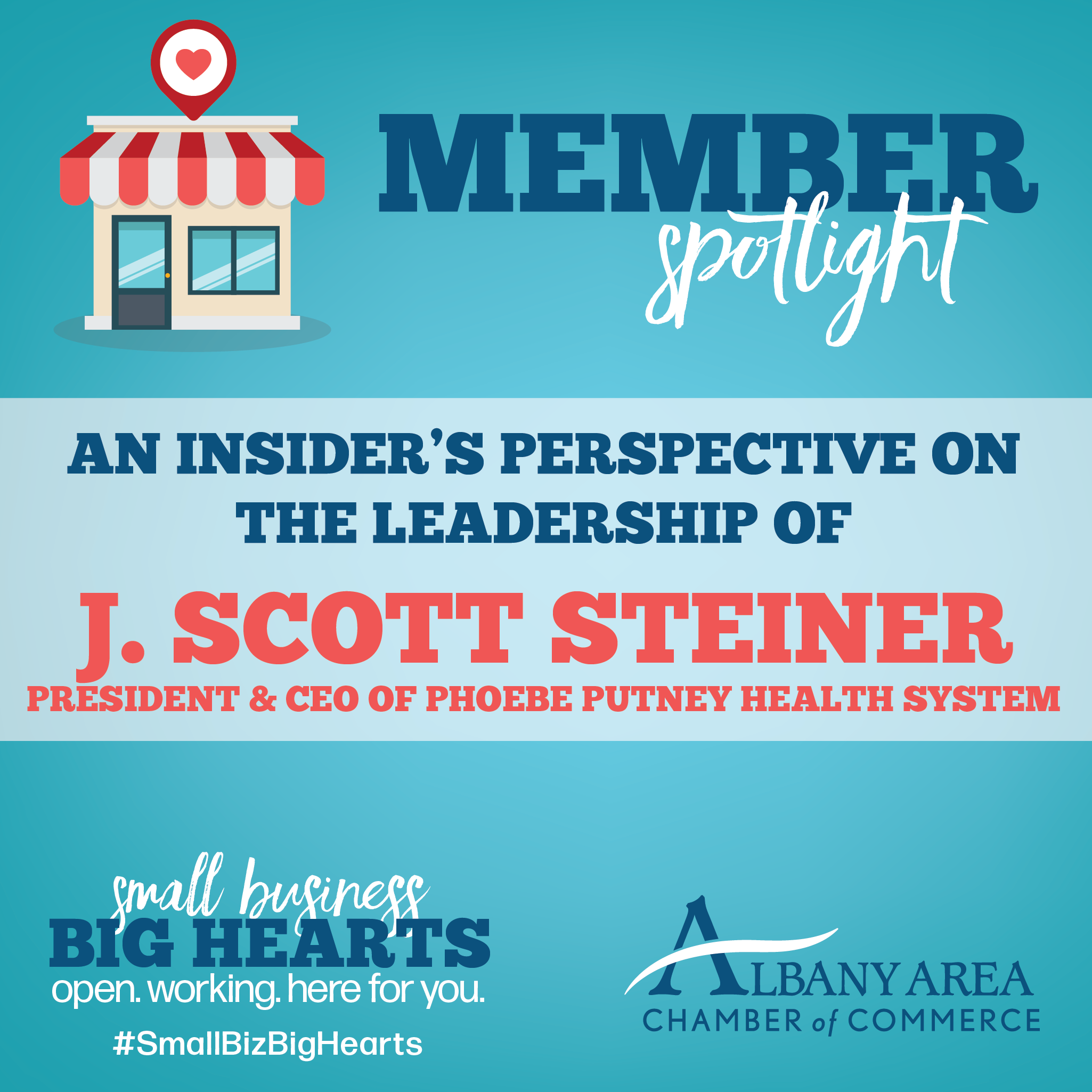J. Scott Kavanaugh, BSN, RN and Manager of Phoebe Care Command, was recently tasked with an assignment while pursuing his Master of Business Administration. The assignment was, “Choose a CEO or top official who is a strong leader in a public or private organization who has displayed exemplary leadership with current world circumstances” based on the five practices of exemplary leadership found in the book, Leadership Challenge by Kouzes and Posner. For Kavanaugh, the choice was evident as he had a front-seat view to watch leadership play out in real-time at the top of his organization. The following is one insider’s view of the inspiring leadership of J. Scott Steiner, President, and CEO of Phoebe Putney Health System.
“The greatest leader is not necessarily the one who does the greatest things. He is the one that gets the people to do the greatest things.”
–Ronald Reagan
An organization often cannot see the full effects of a decision until the time of crisis hits. In the early spring of 2019, as most of southwest Georgia went about their daily routines, Phoebe Putney Health System put two decisions in play that have proven crucial during the current coronavirus COVID-19 pandemic for our community: the launch of Phoebe Care Command Center and the installation of a new CEO.
As an employee of Phoebe Putney Health System, it’s easy for me to choose for this assignment Mr. J. Scott Steiner, our President and CEO – especially amidst the current pandemic we all know as COVID-19. Even before the pandemic, Mr. Steiner was displaying exemplary leadership with only a 1-year tenure with the health system. The mission of Phoebe is supported by his commitment and advocacy for the community we serve, and the individuals we employ. He is a transparent leader, communicating honestly and timely to provide information that aids in alleviating speculation or unrest. While there was preparation for this pandemic for our organization, there was no way to know precisely the impact on our hospital. Though it has impacted our community and health system significantly, Mr. Steiner has promoted and communicated calmness in the storm, as evidenced in national interviews that spotlight his leadership and efforts during this challenging crisis.
When I think about the type of leader that Mr. Steiner is, it is difficult to place him in only one category [as described in the book]. As a charismatic leader, he inspires all within the organization to operate at a higher level of performance as well as consider “out of the box” ideas to best serve our healthcare community. Along with that, Mr. Steiner is diligent in instilling confidence in those to whom he “pins a task.”.
As an authentic leader, he is consistently passionate about the goals and objectives of the health system and is quick to channel our focus in achieving them.
As a servant leader, Mr. Steiner can always be counted on to genuinely interact with all employees working in any capacity. I have witnessed him leading by example over many areas of our health system, and he is engaged in many community activities that the health system employees support.
As a transformational leader, he challenges everyone in his scope to look beyond themselves to see how we can support the best interest of others. By doing this, it further assists in achieving the company’s goals and objectives as well as community credibility. His leadership over the past year has transformed our organization by continuing to push us toward the calling upon which we were founded. As well, during the current pandemic crisis, his leadership has demanded a transformational mindset for the entire organization in a consistently fluid environment. Because of this style of leadership, we are easily able to adapt and be creative because we know we have his support to do so. Without it, we wouldn’t have been able to provide the level of support that we’ve demonstrated in our community during this pandemic crisis.
Mr. Steiner’s leadership encompasses all five leadership practices, but the one that seems relevant for the current critical situation is “encouraging the heart.” No matter the circumstance or challenge at hand, he is always the first to provide encouragement at the culmination of any meeting or conversation. For this reason, it is easy to follow his leadership as well as provide credible work inspired by his vision.
